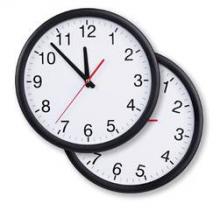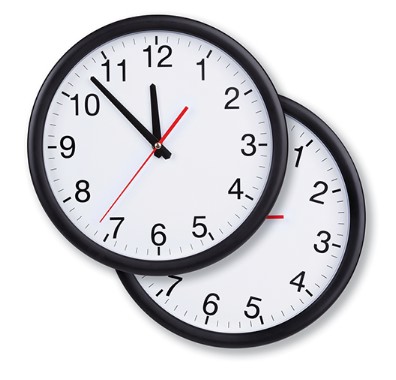User login
Medicare’s "two-midnight" rule governing when a patient should be admitted to the hospital is confusing physicians, draining hospital resources, and ultimately harming patients, according to hospitalists, nurses, and patient advocates.
The providers testified before the House Ways & Means Committee on May 20, seeking relief from the two-midnight rule and greater oversight of Medicare’s Recovery Audit Contractors (RACs), who will ultimately enforce the controversial policy.
On Oct. 1, 2013, the Centers for Medicare & Medicaid Services (CMS) will begin implementing the two-midnight rule, which states that generally Medicare beneficiaries should be classified as inpatients if they are staying in the hospital for two or more midnights. But if the admitting physician expects their stay to be shorter, they should be classified as outpatients for payment purposes, according to the rule.
But CMS delayed full enforcement of the rule for 6 months and Congress extended the delay through March 31, 2015. RACs are barred from conducting postpayment audits based on the rule during that time. However, Medicare Administrative Contractors (MACs) are performing prepayment reviews on a sample of a short-stay inpatient claims to determine hospital compliance with the two-midnight rule.
And, based on feedback from hospitals, CMS officials are considering a new payment methodology for short inpatient hospital stays. They are seeking public comment on how to define a short stay and how to determine those payment amounts, according to Sean Cavanaugh, director of the Center for Medicare and CMS deputy administrator.
Dr. Ann Sheehy, a hospitalist at the University of Wisconsin in Madison, said the time-based nature of the two-midnight rule means that sometimes the decision whether to admit a patient or keep them under observation is based on what time of day they arrive at the hospital, not on their clinical needs.
For instance, a Medicare beneficiary who is hospitalized with pneumonia at 1 a.m. on a Tuesday and is released after 40 hours would fail to meet the two-midnight standard and would be considered an outpatient. But, if the same patient arrived at 10 p.m. on Tuesday, the stay would exceed two midnights and the patient would be classified as an inpatient, said Dr. Sheehy, who is a member of the Society of Hospital Medicine’s Public Policy Committee.
And patients who require intensive care over a 24- to 48-hour period, such as patients with diabetic ketoacidosis, would not necessarily be classified as inpatients despite the level of services they require, she said.
"Now, a short stay, even in the intensive care unit, can be considered outpatient," Dr. Sheehy said.
On Twitter @maryellenny
Medicare’s "two-midnight" rule governing when a patient should be admitted to the hospital is confusing physicians, draining hospital resources, and ultimately harming patients, according to hospitalists, nurses, and patient advocates.
The providers testified before the House Ways & Means Committee on May 20, seeking relief from the two-midnight rule and greater oversight of Medicare’s Recovery Audit Contractors (RACs), who will ultimately enforce the controversial policy.
On Oct. 1, 2013, the Centers for Medicare & Medicaid Services (CMS) will begin implementing the two-midnight rule, which states that generally Medicare beneficiaries should be classified as inpatients if they are staying in the hospital for two or more midnights. But if the admitting physician expects their stay to be shorter, they should be classified as outpatients for payment purposes, according to the rule.
But CMS delayed full enforcement of the rule for 6 months and Congress extended the delay through March 31, 2015. RACs are barred from conducting postpayment audits based on the rule during that time. However, Medicare Administrative Contractors (MACs) are performing prepayment reviews on a sample of a short-stay inpatient claims to determine hospital compliance with the two-midnight rule.
And, based on feedback from hospitals, CMS officials are considering a new payment methodology for short inpatient hospital stays. They are seeking public comment on how to define a short stay and how to determine those payment amounts, according to Sean Cavanaugh, director of the Center for Medicare and CMS deputy administrator.
Dr. Ann Sheehy, a hospitalist at the University of Wisconsin in Madison, said the time-based nature of the two-midnight rule means that sometimes the decision whether to admit a patient or keep them under observation is based on what time of day they arrive at the hospital, not on their clinical needs.
For instance, a Medicare beneficiary who is hospitalized with pneumonia at 1 a.m. on a Tuesday and is released after 40 hours would fail to meet the two-midnight standard and would be considered an outpatient. But, if the same patient arrived at 10 p.m. on Tuesday, the stay would exceed two midnights and the patient would be classified as an inpatient, said Dr. Sheehy, who is a member of the Society of Hospital Medicine’s Public Policy Committee.
And patients who require intensive care over a 24- to 48-hour period, such as patients with diabetic ketoacidosis, would not necessarily be classified as inpatients despite the level of services they require, she said.
"Now, a short stay, even in the intensive care unit, can be considered outpatient," Dr. Sheehy said.
On Twitter @maryellenny
Medicare’s "two-midnight" rule governing when a patient should be admitted to the hospital is confusing physicians, draining hospital resources, and ultimately harming patients, according to hospitalists, nurses, and patient advocates.
The providers testified before the House Ways & Means Committee on May 20, seeking relief from the two-midnight rule and greater oversight of Medicare’s Recovery Audit Contractors (RACs), who will ultimately enforce the controversial policy.
On Oct. 1, 2013, the Centers for Medicare & Medicaid Services (CMS) will begin implementing the two-midnight rule, which states that generally Medicare beneficiaries should be classified as inpatients if they are staying in the hospital for two or more midnights. But if the admitting physician expects their stay to be shorter, they should be classified as outpatients for payment purposes, according to the rule.
But CMS delayed full enforcement of the rule for 6 months and Congress extended the delay through March 31, 2015. RACs are barred from conducting postpayment audits based on the rule during that time. However, Medicare Administrative Contractors (MACs) are performing prepayment reviews on a sample of a short-stay inpatient claims to determine hospital compliance with the two-midnight rule.
And, based on feedback from hospitals, CMS officials are considering a new payment methodology for short inpatient hospital stays. They are seeking public comment on how to define a short stay and how to determine those payment amounts, according to Sean Cavanaugh, director of the Center for Medicare and CMS deputy administrator.
Dr. Ann Sheehy, a hospitalist at the University of Wisconsin in Madison, said the time-based nature of the two-midnight rule means that sometimes the decision whether to admit a patient or keep them under observation is based on what time of day they arrive at the hospital, not on their clinical needs.
For instance, a Medicare beneficiary who is hospitalized with pneumonia at 1 a.m. on a Tuesday and is released after 40 hours would fail to meet the two-midnight standard and would be considered an outpatient. But, if the same patient arrived at 10 p.m. on Tuesday, the stay would exceed two midnights and the patient would be classified as an inpatient, said Dr. Sheehy, who is a member of the Society of Hospital Medicine’s Public Policy Committee.
And patients who require intensive care over a 24- to 48-hour period, such as patients with diabetic ketoacidosis, would not necessarily be classified as inpatients despite the level of services they require, she said.
"Now, a short stay, even in the intensive care unit, can be considered outpatient," Dr. Sheehy said.
On Twitter @maryellenny

